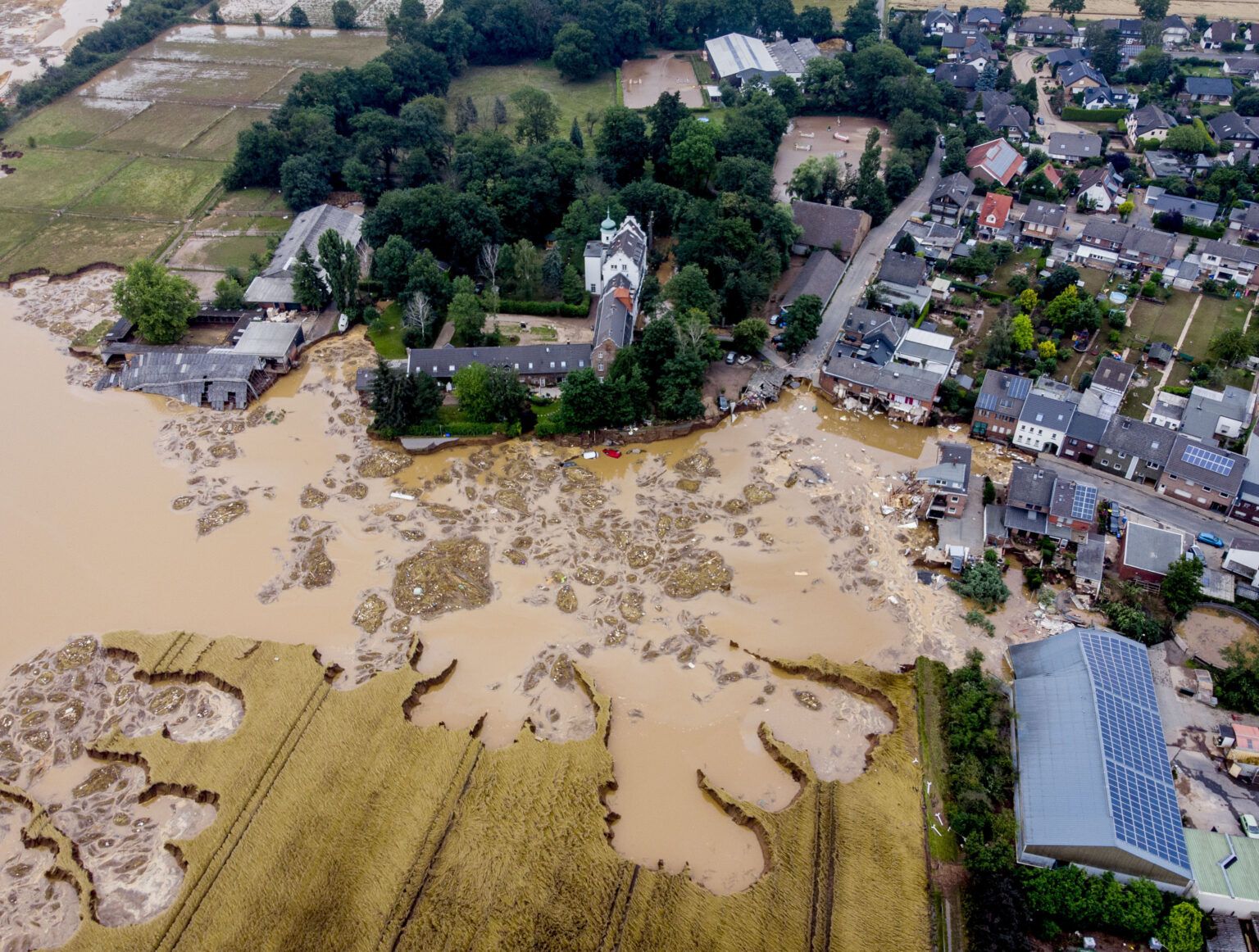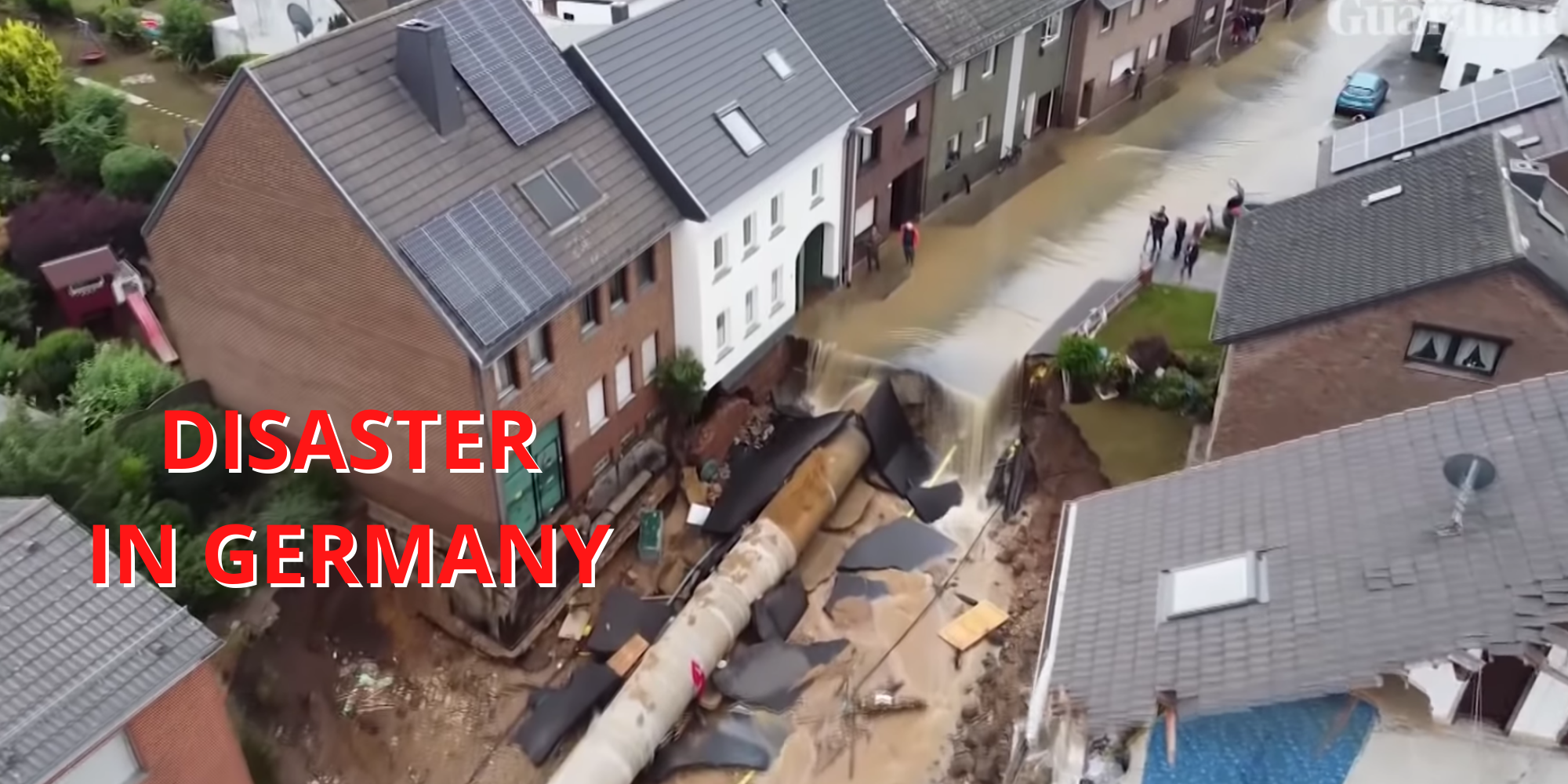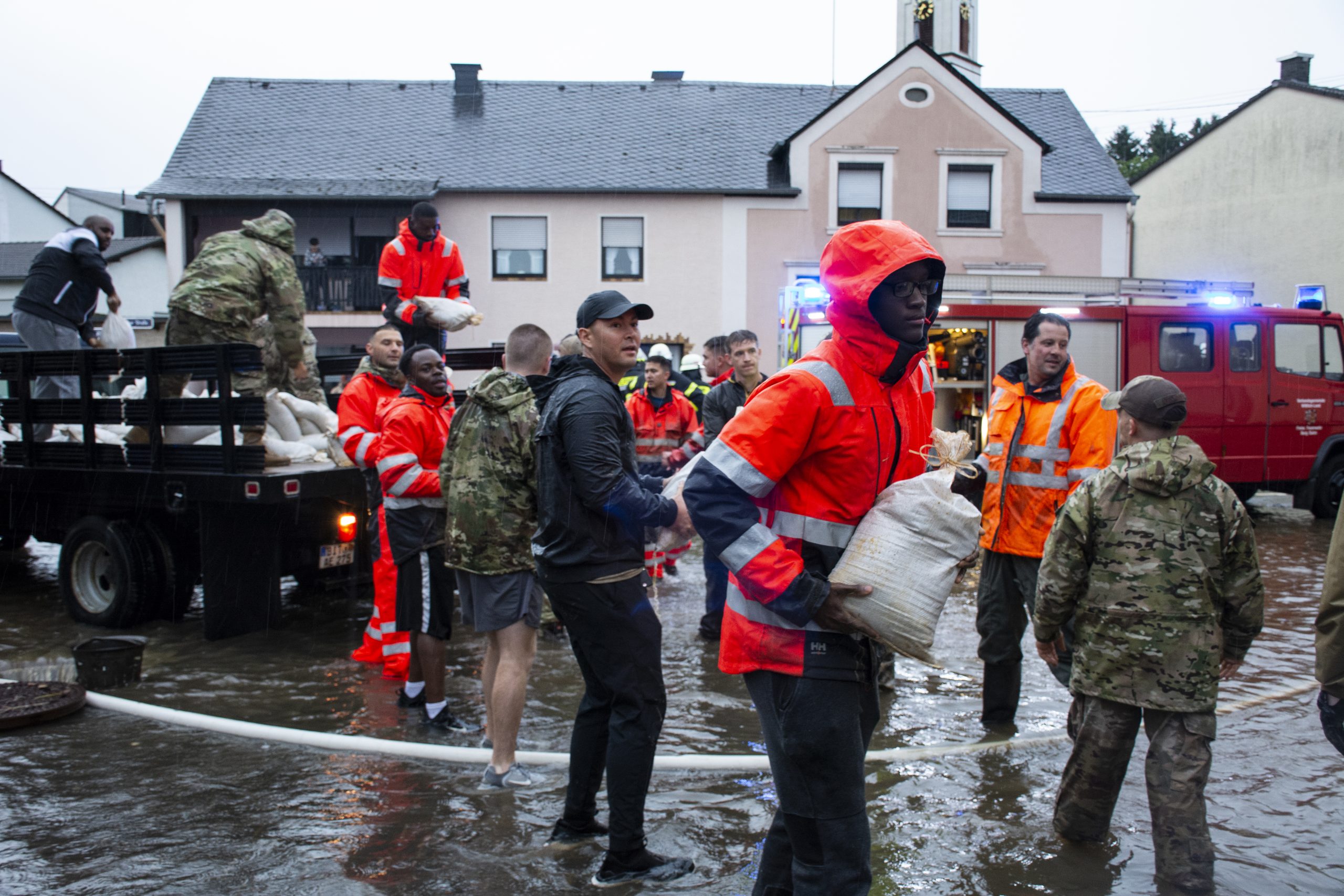
On 17 July, a flash flood swept through Hallein, a town close to the German border. The European Flood Awareness System (EFAS) issued alerts of life-threatening floods in advance, which, although very vague, were delivered to national authorities. Floods started in Belgium, Germany, the Netherlands, and Switzerland on 14 July 2021 after record rainfall across western Europe caused multiple rivers to burst their banks. Some of the affected regions may not have seen rainfall of this magnitude in the last 1,000 years. In Reifferscheid, 207 mm (8.1 in) fell within a nine-hour period while Cologne observed 154 mm (6.1 in) in 24 hours. Heavy rainfall was also seen in the south of North Rhine-Westphalia and north of Rhineland-Palatinate in Germany where accumulations averaged 100 to 150 mm (3.9 to 5.9 in) in 24 hours, equivalent to more than a month's worth of rain. Precipitation was intense in the East of Belgium, with 271.5 millimetres (10.69 in) of rain over 48 hours in Jalhay and 217 millimetres (8.5 in) over 48 hours in Spa. A storm complex moved east from France into Germany and stalled over the region for two days. Weather events īetween 12 and 15 July 2021, heavy rain fell across the United Kingdom, western Germany, and neighbouring Netherlands, Belgium, and Luxembourg. In the aftermath, scientists, activists and reporters all highlighted the connection to global trends in extreme weather, especially more frequent heavy rainfall caused by climate change. The floods are estimated to have cost up to €2.55 billion (US$3 billion) in insured losses, with the total damage costs being much higher, at a minimum of €10 billion (US$11.8 billion). The damage to infrastructure was especially severe in Belgium and Germany.

In addition to the confirmed fatalities, the flooding led to widespread power outages, forced evacuations and damage to infrastructure and agriculture in the affected areas. īelgian Minister of Home Affairs Annelies Verlinden described the events as "one of the greatest natural disasters our country has ever known." German minister-president Malu Dreyer of the Rhineland-Palatinate state called the floods "devastating". At least 243 people died in the floods, including 196 in Germany, 43 in Belgium, two in Romania, one in Italy and one in Austria. Later floods affected several river basins across Europe including Austria, Belgium, Croatia, Germany, Italy, Luxembourg, the Netherlands, and Switzerland. The floods started in the United Kingdom as flash floods causing some property damage and inconvenience. Some were catastrophic, causing deaths and widespread damage. In July 2021, several European countries were affected by severe floods.


“It is something to be attributed to mankind as a whole, and climate change. “The citizens are not to blame for what happened,” said the finance minister, Olaf Scholz. On Wednesday, the chancellor, Angela Merkel, and her cabinet approved emergency financial aid worth €200m for people affected by the flood, with state governments expected to match the federal aid programme, and a larger package to rebuild essential infrastructure expected at a later point. Floods in 2002, when the river Elbe breached its banks in eastern Germany, caused €4.65bn worth of damage. The German Insurance Association has estimated the floods to have caused damages amounting to €4bn to €5bn. Train tracks built alongside rivers have been washed out, with the national rail company, Deutsche Bahn, reporting that 373 miles (600km) of tracks and 80 stations were impassable and could take years to fully rebuild. The Marburger Bund, a trade union representing physicians in Germany, has voiced concern about the shortage of medical staff and supplies in the affected areas, with 20 medical practices closed due to the floods in Rhineland-Palatinate alone. “Kilometres of pipelines and control stations are just gone,” a spokesperson for the regional energy provider EMV said, adding it would take several months to rebuild the infrastructure. In Bad Neuenahr-Ahrweiler, a spa town that serves as the capital of the Ahrweiler district, about 19,000 people are now without gas used to heat water and homes, after pipelines were wiped out along with the bridges to which they were attached. Severe flooding causes devastation in Europe – video report


 0 kommentar(er)
0 kommentar(er)
